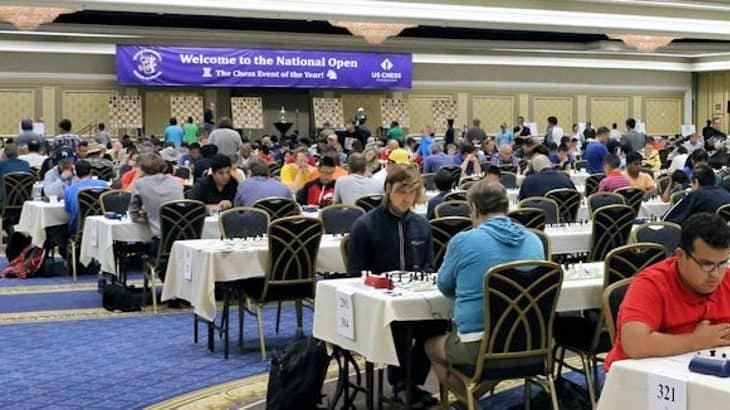
The Difference Between Theory and Practice
"The difference between theory and practice is that in theory there is no difference, but in practice there inevitably is." - GM Jacob Aagaard
I recently ended my hiatus from tournament chess by competing in the National Open. I studied a lot over the last several months, and my online metrics showed a lot of improvement (my chess.com blitz peaked at 2518 and several tactics metrics also peaked), so I had reasonably high expectations for the event. I had no prior FIDE rating and played in the Open section.
Some of the games went very well for me, as my 3 wins were crushes (2 against titled players) and I managed to get a won position against an IM.
Had I defeated the IM that I had a winning position against, my provisional FIDE would have been well over 2300 going into round 5 (it was approximately 2250 before my loss against WFM Joanna Liu). Unfortunately, my lack of tournament experience played a big role in my consistency, which sharply dropped in the later rounds. I had a lot of knowledge but didn't always knowing how to appropriately apply it in a slow time control setting (my main application of study over the last several months was blitz), and my time management and risk assessment was far less than ideal. Here are two examples of my excessively risky decisions.
It's clear to me that my intuition was strong enough for a strong titled performance as I was able to outplay an IM from a lost position and my chess.com blitz peak is higher than many FMs, but my calculation and thought process wasn't ready. From what I know of, it's easier for an adult to optimize calculation/thought process than improve their intuition (see the blog A Theoretical Framework for Adult Improvement for more information), so I'm confident that I can fix this problem. I believe that significant work on slow training and playing in a lot more slow tournaments will help. For slow training, I plan to do more slow calculation training using the Russian method (calculate and evaluate everything that is relevant before moving - write down all the variations if needed) and to take my chess.com correspondence games more seriously. I also plan to play in a lot more tournaments. At bare minimum, I plan to play in at least 3 more major tournaments this summer (World Open, possibly the Southwest Open, and either the FIDE Open SOS or the 49th Annual Continental Open).
The moral of the story is that study isn't always sufficient to fully optimize OTB results, and playing in tournaments can give practical experience on how to correctly apply what is learned in study. Mistakes in practice can be corrected, increasing consistency and helping optimize thought process. Despite the sub-optimal result (my provisional FIDE is estimated to be either 2056 or 2057), I think playing in the National Open was an instructive learning experience for me and I look forward to playing in more big tournaments.
